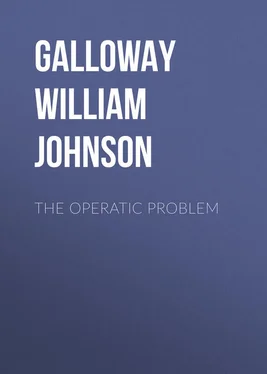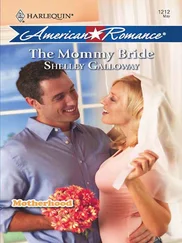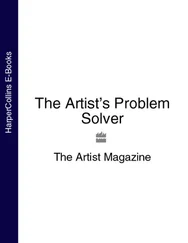William Galloway - The Operatic Problem
Здесь есть возможность читать онлайн «William Galloway - The Operatic Problem» — ознакомительный отрывок электронной книги совершенно бесплатно, а после прочтения отрывка купить полную версию. В некоторых случаях можно слушать аудио, скачать через торрент в формате fb2 и присутствует краткое содержание. Жанр: music_dancing, foreign_antique, foreign_prose, на английском языке. Описание произведения, (предисловие) а так же отзывы посетителей доступны на портале библиотеки ЛибКат.
- Название:The Operatic Problem
- Автор:
- Жанр:
- Год:неизвестен
- ISBN:нет данных
- Рейтинг книги:5 / 5. Голосов: 1
-
Избранное:Добавить в избранное
- Отзывы:
-
Ваша оценка:
- 100
- 1
- 2
- 3
- 4
- 5
The Operatic Problem: краткое содержание, описание и аннотация
Предлагаем к чтению аннотацию, описание, краткое содержание или предисловие (зависит от того, что написал сам автор книги «The Operatic Problem»). Если вы не нашли необходимую информацию о книге — напишите в комментариях, мы постараемся отыскать её.
The Operatic Problem — читать онлайн ознакомительный отрывок
Ниже представлен текст книги, разбитый по страницам. Система сохранения места последней прочитанной страницы, позволяет с удобством читать онлайн бесплатно книгу «The Operatic Problem», без необходимости каждый раз заново искать на чём Вы остановились. Поставьте закладку, и сможете в любой момент перейти на страницу, на которой закончили чтение.
Интервал:
Закладка:
The second obstacle was the counterpart of an inadequate stage – to wit, an overloaded book. There were too many principal characters. They cluttered up the stage, got in each other's way and distracted attention from the main action. A skilful novelist can dispose of a great many characters in one story; a skilful dramatist can put fewer but still a good many into one play, because they are able to explain themselves quickly and by-play is admissible. In grand opera it is otherwise. The characters move on a higher emotional plane; they express themselves in prolonged phrases and accents enlarged beyond the manner of speech, consequently they require more time and space. It must all be simple, large and clear. There must be no distraction of interest; to have several persons of equal importance is fatal. No musician could have made a successful opera of such a book as Ivanhoe . The talent, skill and experience of Sullivan did not fail to produce some agreeable numbers, but they failed most egregiously to make grand opera. A perpetual sense of disappointment pervaded the piece; it never rose to the height demanded by the situation, save when that was comic, and occasionally the failure was absolutely painful. The music kept trying to soar, but was all the time chained by the leg. The reason is obvious. You cannot serve two masters, nor can a man who has devoted a life to light musical composition, suddenly command the powers which can only be won by toil, and tribulation, and faithful devotion to a high ideal. To crown this fabric of shortcomings, the management committed the folly of running Ivanhoe every night. No masterpiece could have stood a test of this kind. And it was thus, with this single unfortunate specimen, that English opera was to be established. Let no one be cast down by this failure. We may rather point to the attempt, to the widespread interest, and to the eager if ill-founded hopes that accompanied it, as signs of vitality. They indicate the existence of a demand, while the recurrent efforts of recent, and of still living composers – of Goring, Thomas, Corder, Stanford, Cowen, Mackenzie, M'Cunn and De Lara – prove that the dramatic instinct has not departed from British composers, and that it is not hopeless to look for a supply in answer to the demand. The seed only needs systematic encouragement, and intelligent cultivation to bear fruit. I firmly believe that the time is ripe for such encouragement to come from an official sphere; in other words, I advocate State intervention in the matter, and the establishment of a subsidised national opera house on the lines successfully adopted in other countries. And that we may profit by the experience of others, let us examine how continental nations fare under the ægis of State-aided Art.
Italy, Germany and France present the most characteristic instances, and I will take a bird's-eye view of the operatic machinery in them, beginning with Italy.
Italy
There are about five hundred theatres in Italy, and quite one half of these have seasons of opera at various times of the year. The traditional Italian operatic season begins on the 26th December of each year at San Stefano Day, and is called the Carnival Season; then follows Quaresima or Lent Season and Primavera or Spring Season – altogether some five months of opera. Besides these there exist ( stagioni di fiere ) short seasons of one or two weeks' duration, at the time of certain famous fairs. There are autumn seasons, and sporadic performances at fashionable summer and bathing resorts. I am quite within strict probability in asserting that in Italy two hundred odd theatres are devoted to opera the whole year round. These theatres may be briefly divided into two classes – municipal and private ones. The latter are run very much on the same lines as private theatres anywhere else, and do not come within the scope of my consideration.
The State does not interfere in any way with Italian theatres, and such help as these receive comes either from municipalities, or especially formed associations of institutions linked by common interest with the working of a theatre. But the principle of such help is always that of an act performed for the public good, or, as it is officially termed, per ragioni di pubblica utilita , and it naturally takes the form of a monetary subsidy. This suésidy varies according to the importance of the theatre, the rank of the city, the prospects of the season, and its grant is altogether opportunistic and at times arbitrary. In the majority of Italian theatres boxes are proprietary, and the palchettisti (box-holders) have a direct interest and a vote of some weight in the prospective arrangements of a season. The impressario desirous of running an operatic theatre must submit his prospectus to the box-holders at the same time he submits it to the municipality from which he wishes to obtain his contract, and of course, his subsidy. A theatrical board ( Commissione Teatrale ), composed of local authorities, and box-holders examines the prospectus, and if the decision is unfavourable another plan has to be submitted by the same man, or another aspirant, or perhaps the Commissione has a scheme of its own. As a rule, stipulations comprise either a novelty or a favourite opera, called in this case "obligatory" ( opera d'obbligo ), a ballet, or simply a specified number of performances. The length of the season varies from eight days ( stagione di fiera ) to two months, the repertory may consist of one opera or twenty, whilst the figure of the subsidy is anything between £20 and £8000. The average, however, is three operas for a medium season of one month – one obligatory, one di repiego (for a change) and another, da de Stinarsi (to be selected), at the choice of the impressario or in accord with the Commissione . Five performances weekly are the orthodox number, Mondays and Fridays being recognised as days of rest.
If an agreement is arrived at, the impressario is put in possession of the theatre for the period stipulated, and sets about running his season. He is given but the bare building and seats; he has to provide scenery, costumes, orchestra and chorus in addition to his company of artists. Sometimes orchestra and chorus are local institutions, and there are small places in which the conductor is an employé
Конец ознакомительного фрагмента.
Текст предоставлен ООО «ЛитРес».
Прочитайте эту книгу целиком, купив полную легальную версию на ЛитРес.
Безопасно оплатить книгу можно банковской картой Visa, MasterCard, Maestro, со счета мобильного телефона, с платежного терминала, в салоне МТС или Связной, через PayPal, WebMoney, Яндекс.Деньги, QIWI Кошелек, бонусными картами или другим удобным Вам способом.
1
Here is an extract of this privilège : – "Nous avons au dit Perrin, accordé et octroyé, accordans et octroyons par les présentes signées de notre main la permission d'etablir en notre bonne ville de Paris et autres de nostrec Royaume, des Académies composées de tel nombre et qualité de personnes qu'il avisera, pour y représenter et chanter en public des opéra et représentations en musique et en vers français, pareilles et semblables à celles d'Italie. Et pour dédommager l'Exposant, des grands frais du'il conviendra faire pour les dites Représentations, tant pour les Théatres, Machines, Décorations, Habits qu'autres choses nécessaires; nous luy permettons de prendre du public telles sommes qu'il avisera et à cette fin d'etablir des gardes et autres gens nécessaires à la porte des lieux où se feront les dites Représentations; Faisant très expresses inhibitions et défences à toutes personnes de quelque qualité et condition qu'elles soient, mesme aux officiers de nostre Maison d'y entrer sans payer, et de faire chanter de pareils opéra ou Représentations en musique et en vers français dans toute l'entendue de nostre Royaume pendant douze années sans le consentement et permission du dit exposant, à peine de dix huit mil livres d'amende," etc., etc.
Интервал:
Закладка:
Похожие книги на «The Operatic Problem»
Представляем Вашему вниманию похожие книги на «The Operatic Problem» списком для выбора. Мы отобрали схожую по названию и смыслу литературу в надежде предоставить читателям больше вариантов отыскать новые, интересные, ещё непрочитанные произведения.
Обсуждение, отзывы о книге «The Operatic Problem» и просто собственные мнения читателей. Оставьте ваши комментарии, напишите, что Вы думаете о произведении, его смысле или главных героях. Укажите что конкретно понравилось, а что нет, и почему Вы так считаете.












